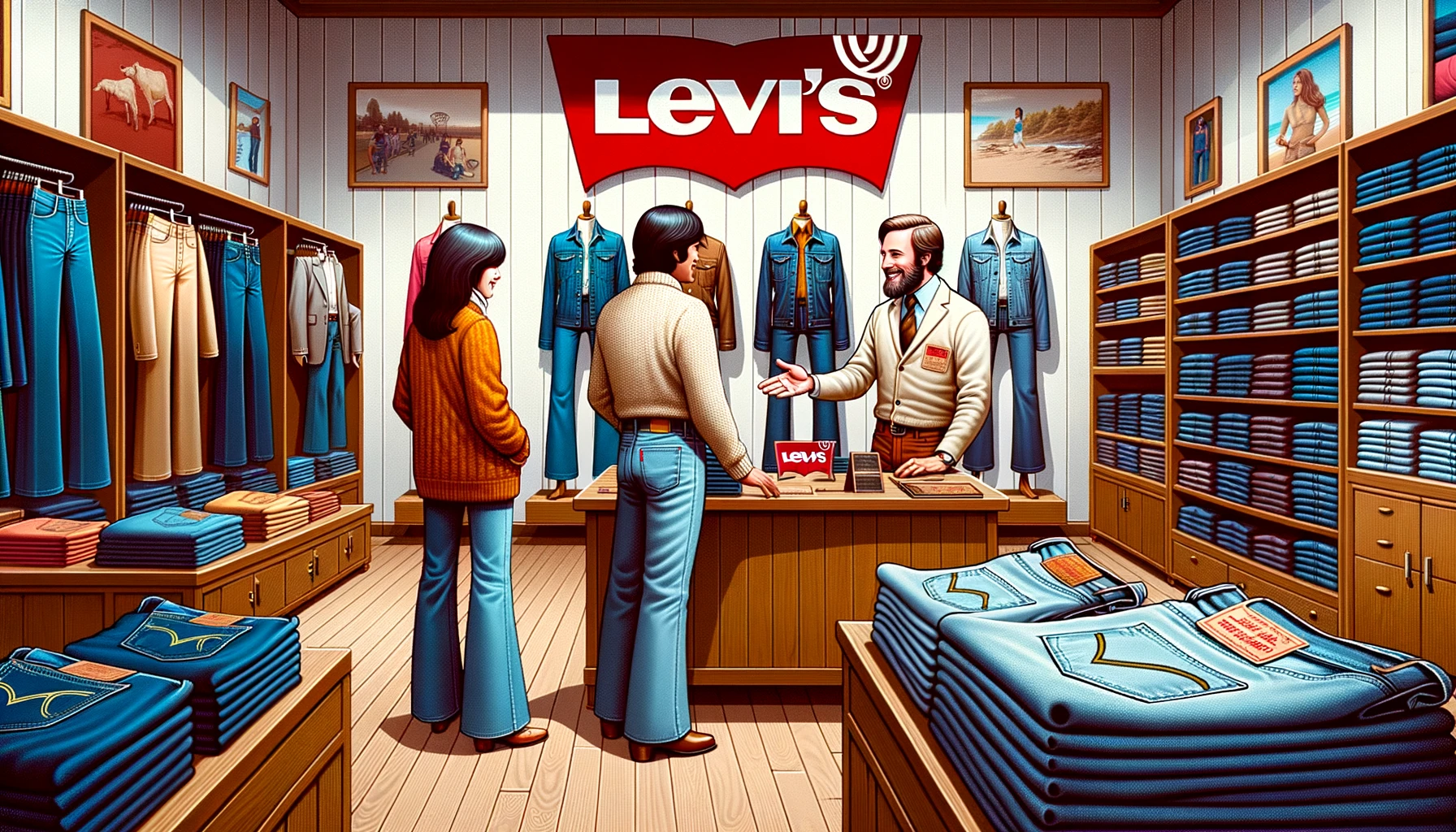Jeff Bezos once said that the reason Amazon worked was that customers have an "endless supply of wants." As product managers, we live this reality every day. Customer requests come hard and fast. And they never stop. Amid this overwhelming flood, the instinct may be to build whatever they ask for. But the secret to long-term success lies in building trust. And not delivering what customers ask for, but what they actually need.
Trust is the cornerstone of any successful customer relationship. Winning customer trust is often the difference between churn and loyalty.
Build by Tony Fadell is packed with product lessons. (If you haven't read it yet, what are you waiting for?) One of the most unexpected lessons comes not from the father of the iPod, but from his father, a Levi's salesman. As Tony tells it:
"I learned it first from my dad.
He was a salesman for Levi's in the seventies, when Levis jeans were an international obsession. He could have made tons of money unloading Levi's crappier designs on retail stores and swiftly moving on.
But he was a great salesman. Year after year he won all the sales awards-I'd see the trophies and plaques he'd bring home. And his goal was never short-term gain. It was trust. So he showed his customers the entire lineup of products, told them which were selling well, which weren't. He steered them toward the cool styles, away from the stuff no one was buying. And if the customer wanted something he didn't offer, he pointed them to a competitor who did.
Those customers remembered him. And the next season or the next year or ten years down the road, they would call him up again. They'd make an order. And again the next season. And the season after that.
My dad was on commission but he would often sacrifice a sale in order to build a personal connection. The best salespeople are the ones who maintain relationships even if it means not making money that day."

In the denim hype, it would have been easy to unload everything on customers. Instead, he only sold them what they needed (items that their customers would want). In some cases, he even sent them somewhere else if it meant they got what they needed. Fadell's father knew that building trust was the key to long-term success, a lesson that translates well to product management.
Let me tell you about a time when I didn't follow Fadell's advice. At a past job, we were working with a customer who had bought our product based on our reporting capabilities. They had a long list of metrics and KPIs that they wanted to track. We were excited to tell them that we could provide everything they asked for (and more). But we didn't take the time to consider if it would bring them true value. We hustled to get everything in place and ended up with a dashboard that was packed to the bezels with data.
On launch day we watched their account with anticipation and saw user count take off like a rocket. The next day was the same. And then things started to go wrong. Day after day, fewer and fewer users logged in. And after two weeks, no one was using the product. When we met with the customer they were not happy. They said that there was too much information in the product, and it was overwhelming. Turns out that giving them exactly what they wanted had backfired.
We worked with them over the next few weeks to rebuild trust and narrow in on the problem they were trying to solve. Our next iteration of reports couldn't have been more different than where we started. It was more or less one KPI on a screen that tracked their most important goal. Once they trusted that KPI and saw it progressing, we added another. And then once there was trust and progress there, we added again. We kept repeating this process until they had everything they needed. In the end, we delivered a product that was far more aligned with their actual requirements. The client not only became an engaged customer but also a brand advocate.
Building trust doesn't just secure a sale today or keep a customer around for another year; it opens the door for future collaborations, referrals, and valuable feedback. It transforms customers into partners.
For product managers, establishing trust is crucial. We are the bridge between customers and the solutions that meet their needs. Ignoring this principle may result in short-term gains, but it will jeopardize long-term relationships and product success.
This seems more relevant than ever in this newest age of AI. It seems that AI is all anyone is talking about these days. Everyone is rushing to cram LLM's into their products. It is probably how the 70's felt but instead of Levi's being the hot brand, now it is ChatGPT.
As product managers, it would be easy to throw a wrapper around the GPT API and tell customers that we are "powered by AI". After all that seems to be what they are asking for. Or we can do the right thing and take the long-term approach. We can dig into the problems our customers are facing. Then determine what types of AI or ML models will best solve those problems (or decide if AI is needed at all). And then we can do the hard work to build resilient models that our customers can trust and rely upon for the long term. And in this process, they will come to trust us and look to us as a partner.
In the race to be ahead, let's not forget the wisdom of old-school salesmen like Tony Fadell's father. Trust isn't built overnight, but it's the foundation of long-lasting success in product management.
What are your experiences with building customer trust? How are you handling all the demand around AI and LLM's? I'd love to hear your experiences and insights.
